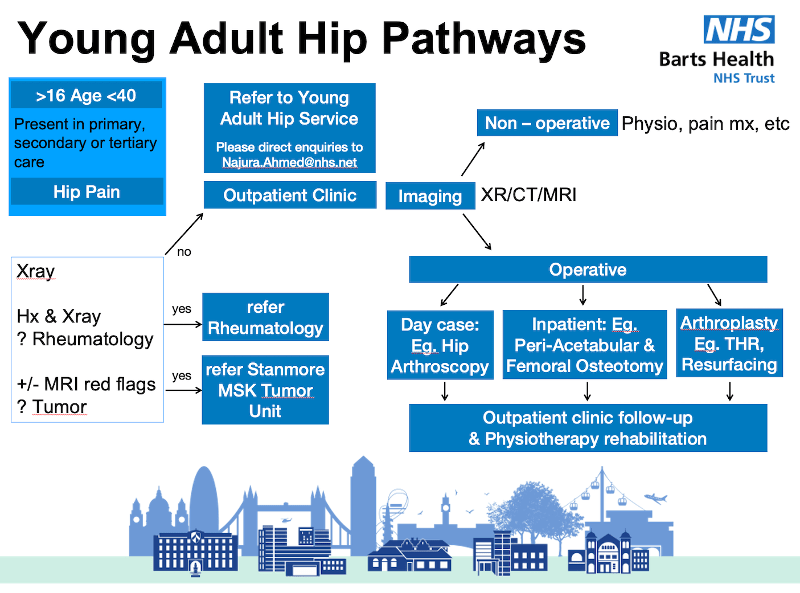
The management of hip fracture in older adults
Background
To minimise the impact on the individual as well as the healthcare system, it is important that decisions about hip fracture management are based on reliable and robust evidence. Recently NIHR funded a Systematic Reviews Programme of work to develop a suite of Reviews that would provide up to date evidence to support clinical decision makers and health technology appraisal organisations such as NICE in the development of guidance.
This special collection highlights Reviews in the Cochrane Library from Cochrane Anaesthesia, Cochrane Bone, Joint and Muscle Trauma, Cochrane Dementia and Cognitive Improvement and Cochrane Vascular. It includes those funded by this programme as well as other Reviews of interventions and strategies relevant across the recovery journey for people with hip fracture.
Perioperative Care
Two reviews assessed common interventions used in the perioperative period: treatments to prevent bleeding as a consequence of both injury and surgical intervention and to prevent venous thromboembolism, as well as the effectiveness of advanced methods to manage fluid therapy during this period. In addition, an overview is due for publication soon which summarises the evidence from systematic reviews of pharmacological treatments to reduce the need for allogenic blood transfusion.
Anticoagulants to reduce the risk of VTE
Fluid management following hip fracture
Interventions for reducing red blood cell transfusion after hip fracture: an overview of reviews
17 reviews with 29 RCTs evaluated tranexamic acid, and 9 reviews with 7 RCTs evaluated iron. Tranexamic acid likely reduces the need for allogenic blood transfusion in adults undergoing hip fracture surgery with likely little or no difference to adverse events. Results for intravenous iron use are less certain because of limited evidence.
Anaesthesia and Analgesia
- General anaesthesia (using inhalational agents, or total intravenous anaesthesia).
- Neuraxial blocks (epidural, spinal, or combined epidural/spinal).
- Peripheral nerve blocks (posterior lumbar (psoas) plexus blocks, with or without sacral plexus blocks, or any other peripheral nerve blocks).
Nerve blocks for hip fracture
Anaesthesia for hip fracture surgery
Surgery
- Internal fixation with pins, screws, and fixed angle plates.
- Arthroplasties fixed in place with or without bone cement using hemiarthroplasties (bipolar or unipolar), and total hip arthroplasties (single or dual-mobility articulation).
- Non-operative treatment.
Internal fixation for intracapsular fractures
Arthroplasties for hip fractures
Surgical treatments for intracapsular fractures: a NMA
Nails versus plates for extracapsular fractures
Surgical treatments for extracapsular fractures: a NMA
This network meta-analysis included 184 studies with 26,073 study participants. 73 studies with 11,126 participants contributed data for at least two of these treatments in network meta-analyses for mortality, health-related quality of life, and unplanned return to theatre. There was considerable variability in the ranking of each treatment such that there was no one outstanding superior treatment. However, static implants such as condylocephalic nails and static fixed angle plates did yield a higher risk of unplanned return to theatre. Short nails and dynamic fixed angle plates yielded similar outcomes. These comparisons included people with both stable and unstable extracapsular fractures. Few studies addressed the benefits or harms of arthroplasty.
Rehabilitation
These reviews considered the additional support that people may need whilst recovering from surgery – either whilst still in hospital or after discharge. They also looked specifically at the additional needs in this patient group, who may be malnourished at the time of their fracture or have poor food intake whilst in hospital, or who may have dementia.
Rehabilitation after fracture
Rehabilitation after fracture for people with dementia
Supplements after fracture
41 studies with 3881 study participants. Most studies compared oral multinutrient supplements with a control. There was low‐certainty evidence that oral multinutrient supplements started before or soon after surgery may prevent complications within the first 12 hours but that they have no clear effect on mortality. There was very low‐certainty evidence that oral supplements may reduce death or complications and do not result in an increased incidence of vomiting and diarrhoea.
Improving mobility after fracture
40 studies with 4059 study participants. Mobility strategies given in hospital may lead to a moderate, clinically meaningful increase in mobility and a small improvement in walking speed. Strategies given in a post-hospital setting lead to a small, clinically meaningful increase in mobility and a small improvement in walking speed. Whilst post-hospital strategies lead to an improvement in functioning and health-related quality of life, this may not be a clinically meaningful difference. The review also looks at the effectiveness of different types of strategies according to the ProFaNE classification.





































































































